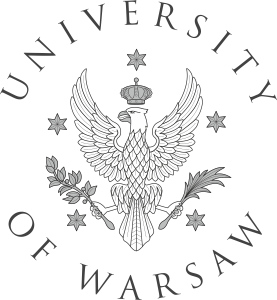11 marca 2020
Due to the Rectoral Order of March 10, 2020 on preventing the spread of COVID-19 virus among the community of the University of Warsaw, the seminar by
prof. Adam Petrusek
Charles University of Prague, Czech Republic
titled: Crayfish plague from Central Europe to continental scale: distribution, diversity and impact of the pathogen
has been cancelled
10 marca 2020
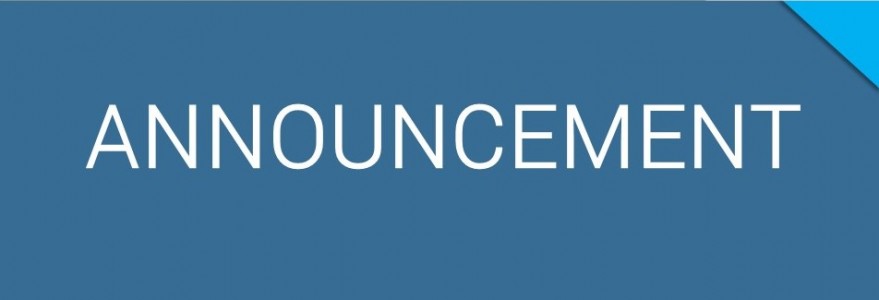
In connection with preventing COVID-19 spread among the UW community, the Rector of the University of Warsaw:
- Cancels lectures and classes for students, doctoral candidates, post-diploma learners, with the exception of classes conducted on-line (until 14th April 2020);
- Cancels open events such as conferences, symposiums, lectures, including coursesof the Open University of the University of Warsaw, artistic performancesand other meetingsof this type organised by the University of Warsaw as well as events organised by external entities at the premises of the University of Warsaw (until 30th April 2020);
- Suspends business travels abroad and participation in domestic conferences of employees, doctoral candidates, students and post-diploma learners of the university (until 30th April 2020).
Following changes shall become effective on 11th March.
View a translated version of the Order of the Rector of the University of Warsaw on prevention of the spread of COVID-19 virus among the community of the University of Warsaw >>
The translation was prepared by the UW International Relations Office.
Source: www.en.uw.edu.pl
09 marca 2020
Position for adjunct (post doc) who will develop new models and software in a project at borderline of crystallography and computational chemistry entitled „Advancing quantum crystallography for better insight into structure and properties of crystals” financed by National Science Centre (NCN) is open for application. Project leader: Prof. dr hab. Krzysztof Woźniak. Deadline for applications: 10 April 2020. For more info see >> pdf
05 marca 2020
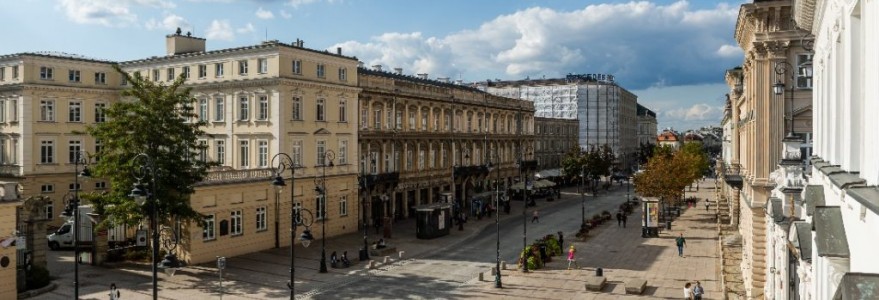
We publish an announcement of the University of Warsaw rector on recommendations related to Coronavirus SARS-CoV-2 spread.
Due to the increasing number of areas where COVID-19 is spread, including Europe, the University of Warsaw authorities recommend as following:
- To postpone or, in exceptional cases, cancel all events in which people from the following countries were to participate: China, Hong Kong, South Korea, Italy, Iran and Japan (announcement of the Chief Sanitary Inspectorate for Travellers, No. 39 on 3rd March 2020). It applies to those who, within the last 14 days, visited the mentioned above countries.
- Decisions regarding postponing or cancelling other events should result from an analysis of potential decisions of participants or speakers. Due to some limitations in mobility, there might occur situations in which people who declare to participate in a given event will decide not to take part.
- To limit, to an absolute minimum, academic events (university-wide, faculty, sports activities, etc.) organised by the University of Warsaw units. It applies in particular to events gathering a large group of participants.
- To limit both national and international mobility. It refers to all groups of UW employees.
- To follow announcements of the Chief Sanitary Inspectorate.
Recommendations included in previous announcements on COVID-19 remain in force.
The University of Warsaw authorities, cooperating with the Medical University of Warsaw, are in direct contact with members of special expert team in virology, set up by the rector, Mirosław Wielgoś. Its task is to monitor risks associated with spreading COVID-19 infection.
If necessary, in the coming days, new announcements on COVID-19 will be issued.
Source: www.en.uw.edu.pl
04 marca 2020
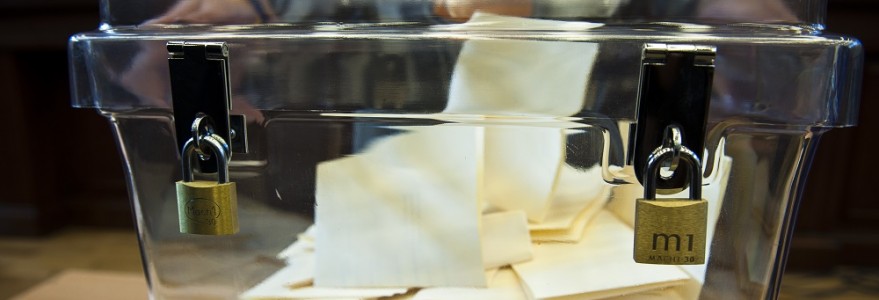
On 3rd March, the first Electoral College meeting took place. Members of this body elected three candidates for the position of rector. On 22nd April, it will be clear who will manage the university’s activity, represent UW externally and be the superior of employees, students and doctoral candidates.
The Electoral College is, apart from the University Council of the University of Warsaw, entitled to indicate candidates for the position of rector. According to UKW, the University Electoral Committee, resolution, The Electoral College comprises 389 members. The body that consists of representatives of the University community groups, academic teachers and non-academic employees (311), doctoral candidates (5), students (73) elected at faculties and in constituencies. The Electoral College of the University elects both the UW rector, and members of the Senate.
On 3rd March, the electors, in a secret ballot, indicated candidates. Each elector had the right to nominate two candidates in the candidate indication vote. The nomination did not require the candidate’s consent. The candidates nominated in the indication vote by at least 10% of the voters passed to the proper vote, after having submitted their written consent to stand for election and, take the position if elected to the University Electoral Committee.
Candidates for the UW rector indicated by the Electoral College:
– Prof. Alojzy Nowak (221)
– Prof. Andrzej Tarlecki (146)
– Prof. Paweł Strzelecki (96)
Another bodyauthorised to nominate candidates for the UW rector is the University Council. According to the University of Warsaw Statute, the University Council nominates two candidates. The Council needs to put forward its candidates for the rector by 11th March.
The UW Senate meeting aimed togive its opinion on each candidate (both indicated by the Electoral College and by the University Council) will be held on 18th March. On 30th March, the University Electoral Committee organises a pre-election meeting with all candidates for the rector. All members of the University of Warsaw community can take part in it.
On 22nd April, there will be a proper vote, and the UW rector will be elected.
Source: www.en.uw.edu.pl
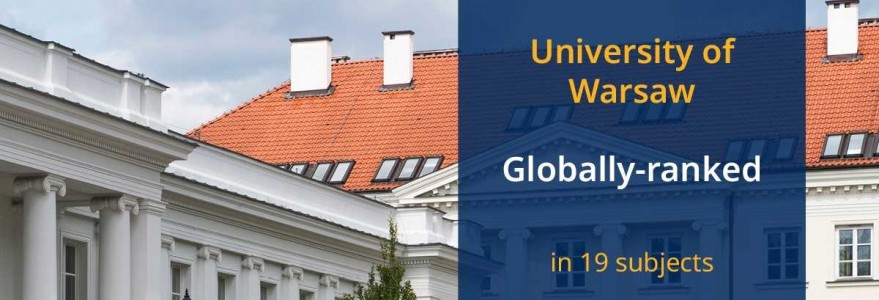
19 study programmes run at UW have been listed in the latest edition of the QS World University Rankings by Subject.
The QS World University Rankings by Subject is an annual comparison of the world’s higher education institutions in a range of popular subject areas. It is based on academic reputation, employer reputation, citations per paper, and H-Index (a way of measuring both the productivity and impact of the published work of a scientist or scholar).
To compile these rankings authors analysed the performance of 13 138 individual university programmes, taken by students at 1 368 universities which can be found in 83 locations across the world.
The 2020 edition of the ranking features 48 academic disciplines and five broad Faculty Areas: Arts & Humanities, Engineering & Technology, Life Sciences & Medicine, Natural Sciences, and Social Sciences & Management. 19 programmes provided by the UW have been recognised in this year’s QS World University Rankings by Subject. The number of the UW programmes in the ranking is growing. In the previous year there were 17 programmes. The list below presents UW subjects which were ranked in the QS World University Rankings by Subject in 2020.
Subjects – 101-150:
- Archaeology
- Modern Languages
- Philosophy
Subjects – 151-200:
- Politics and International Studies
- History
- Linguistics
- Communication & Media Studies
- Law
- Geography
- Physics & Astronomy
Subjects – 201-250:
- English Language & Literature
- Sociology
- Mathematics
Subjects – 251-300:
- Psychology
- Computer science and Information Systems
- Economics and Econometrics
Subjects – 301-350:
- Chemistry
- Biological Sciences
Subjects – 401-450:
- Business & Management Studies
View the full results >>
Source: www.en.uw.edu.pl
02 marca 2020
The Centre of New Technologies invites to a seminar by
Prof. Józef Dulak
Head of Department of Medical Biotechnology, Faculty of Biochemistry, Biophysics and Medical Biotechnology, Jagiellonian University, Kraków
Title: New mechanisms of muscles injury and repair
Date: March 6th, 2020 (Friday)
Time: 12:00 p.m.
Venue: Centre of New Technologies, Banacha 2C, Lecture Hall 0142 (Ground floor)
Host: prof. Krzysztof Kobielak
Skeletal muscles efficiently regenerate after injury while heart does not and destroyed cardiomyocytes are replaced by the fibrotic scar. Regeneration of skeletal muscles is driven by the satellite cells, the bona fide stem cells, which upon activation start to proliferate and differentiate, fuse and finally form the muscular fibers. Impairment of muscle regeneration develops with age and is also associated with the inherited muscular dystrophies. Among them the Duchenne muscular dystrophy (DMD) is the most common, still unfortunately incurable. The lack of dystrophin results in the aggravated muscles injury which do not efficiently regenerate and the affected boys loose ambulation in the early teenage and die due to heart failure mostly in the 3rd decade of life.
Restoration of dystrophin in muscles and heart is an obvious but very challenging and so far, not successful way to treat DMD. However, modulation of inflammation linked with muscle and heart damage can ameliorate disease conditions. We have shown that disturbance of muscle regeneration is linked with impairment of satellite cells differentiation and the lack of additional genes can either ameliorate or aggravate the absence of dystrophin. We revealed that different pathways, including Nrf2, heme oxygenase-1 and mir-378 are promising targets to modulate disease progression through influence on satellite cells, inflammation, fibrosis, angiogenesis and metabolism. Employing on these mechanisms and on the induced pluripotent stem cells-based technology offers the chance for better understanding of heart failure in DMD patients and development of treatments approaches relying on iPSC-derived cardiomyocytes and pharmacological compounds.
Supported by Maestro (2013-2018 and 2019-2024), OPUS (2014-2017) and Harmonia (2016-2019) grants from the National Science Centre.
27 lutego 2020
PhD Student position is available in Grela’s group in the International Training Network (ITN) and more specifically a European Joint Doctorate (EJD), funded by the European Commission through the Marie Sklodowska-Curie Action (MSCA), entitled „Coordination Chemistry Inspires Molecular Catalysis” (CCIMC). Project title: „Immobilization of NHC’s ligands in Janus Dendrimers. Catalysis in green solvents”. Supervisors: Prof. Karol Grela and Dr. Rosa María Sebastián. Deadline for applications: 31 March 2020. For more info see >> pdf
High paying position for adjunct (post doc) who will develop new models and software in a project at borderline of crystallography and computational chemistry entitled „Advancing quantum crystallography for better insight into structure and properties of crystals” financed by National Science Centre (NCN) is open for application. Project leader: Prof. dr hab. Krzysztof Woźniak. Deadline for applications: 5 April 2020. For more info see >> pdf


